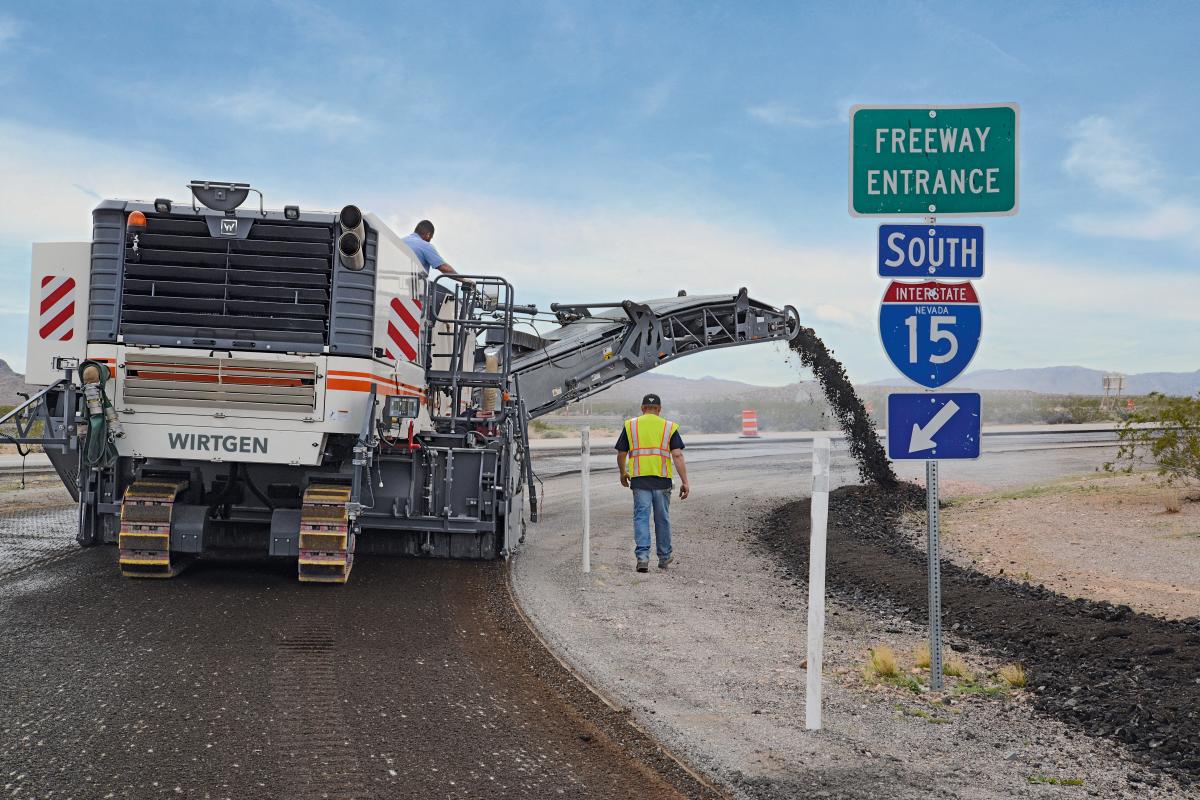Having safe, smooth, and appealing roads and driveways is necessary for homeowners and property owners alike. Asphalt surfaces become cracked, rutted, and degraded over time as a result of weather, traffic, and age. While perhaps complete rebuilding will appear to be the only option, there’s a better, more cost-effective solution: asphalt milling.
Asphalt milling is a very effective and affordable way to return paved surfaces to their original condition without having to tear up the whole structure. If you’re working for a commercial property or replacing your residential driveway, asphalt milling provides smooth results at a fraction of the price of repaving.
What Is Asphalt Milling?
Asphalt milling, or cold planing, refers to the process of removing the surface layer of damaged asphalt, but the base remains intact. Milling machines, specially designed for this purpose, grind off the surface layer to a defined level. Following milling, a new asphalt layer may be laid directly over the milled surface, leaving a smooth, flat, and long-lasting finish.
This method is commonly employed for public roads, residential roads, industrial areas, and private driveways. Asphalt milling not only enhances surface looks but also fixes drainage problems and brings back functionality in the absence of full-depth removal.
Why to Opt for Asphalt Milling?
Cost-Effective
Asphalt milling minimizes the demand for new material and extensive reconstruction. By keeping the existing base, you reduce expenses on material and labor substantially.
Quick and Efficient
Milling jobs are done faster than complete replacement. Driveways and roads can usually be milled and resurfaced within days, with minimal disruption.
Environmentally Friendly
The milled product, or Reclaimed Asphalt Pavement (RAP), is recycled into new asphalt mixtures. This conserves resources and encourages sustainable construction methods.
Enhanced Surface Safety
Milling fills in bumps, ruts, and cracks, providing a safer driving surface with improved traction and drainage.
Perfect Preparation for Resurfacing
In case you will be overlaying your asphalt surface, milling is the perfect preparation for lasting bonding and finish.
Uses of Asphalt Milling
1. Residential Driveways
Residential driveways crack or become uneven over time. Milling cuts away the old layer and gets it ready for a new surface, improving curb appeal and use.
2. Public and Private Roads
Municipal and private roads are improved by milling through eliminating hazards such as potholes, enhancing road conditions, and increasing surface life.
3. Parking Lots
In business environments, milling provides smooth surfaces for clients and avoids expensive repairs through early problem correction.
4. Industrial and Agricultural Surfaces
Heavy loads and equipment can lead to quick degradation. Milling maintains these surfaces level and safe for continued use.
The Asphalt Milling Process
➤ Step 1: Assessment
Experts assess the current pavement to decide on the right milling depth, typically 1–4 inches.
➤ Step 2: Milling Execution
A cold planer removes the distressed layer without disturbing the sub-base. The machinery depends on surface area and scope of work.
➤ Step 3: Material Removal and Recycling
The removed material is taken away and usually recycled for reuse in subsequent paving works, lowering cost and environmental footprint.
➤ Step 4: Cleaning and Preparation
Following milling, the surface is cleaned of dust and debris in preparation for the new asphalt overlay.
➤ Step 5: Resurfacing
A new layer of hot mix asphalt is applied, producing a smooth, like-new surface that adheres well to the milled layer.
Advantages Over Full Removal and Replacement
Whereas complete asphalt replacement is the only option in extreme instances, asphalt milling comes with significant advantages in most moderate repair cases:
Less Costly: Excavation, materials, and labor are saved.
Quicker Turnaround: Work can be finished in days, not weeks.
Minimal Disruption: Adjacent structures and landscaping are not disturbed.
Saves Grades: Milling doesn’t disturb existing curbs, drainage slopes, and elevations.
Maintenance After Milling and Resurfacing
To prolong the life of your resurfaced and milled asphalt pavement, follow these tips:
- Sealcoat every 2–3 years to protect it from UV, chemicals, and water.
- Fix cracks in the early stages before they grow.
- Scrub away debris and oil residue to avoid degradation.
- Don’t use heavy equipment right after paving until it has fully cured.
How to Select the Best Asphalt Milling Contractor
Selecting the best professional guarantees success and longevity. Be on the lookout for:
- Experience and Reputation: Check reviews and past project photos.
- Licensing and Insurance: Always verify coverage to avoid liability.
- Modern Equipment: Reliable results come from advanced machines and trained operators.
- Clear Communication: Contractors should offer detailed estimates, timelines, and recommendations.
Conclusion
As soon as asphalt surfaces start cracking or wearing out, it does not necessarily require complete replacement. The intelligent alternative in such cases is asphalt milling which is cost-saving, fast, and eco-friendly. It’s ideal for highways, driveways, parking lots, and beyond—particularly if the base course is still sound.
With the assistance of expert asphalt milling contractors, your surface can be returned to a smooth, safe, and attractive condition, without breaking the bank. Whether you own a commercial property or simply desire a better driveway, asphalt milling is the cost-effective and efficient solution.
FAQs
1. What is asphalt milling?
Asphalt milling strips the upper layer of asphalt to set the stage for a new surface with the base left intact.
2. How does milling differ from repaving?
Milling retains the sub-base and is less expensive, whereas repaving destroys all of it and is more intrusive.
3. Does asphalt milling repair potholes?
Yes, milling eradicates surface deterioration such as potholes if followed by resurfacing.
4. Is milling ideal for driveways?
Yes—milling is ideal for crack-filled or surface-damaged residential driveways.
5. How long does asphalt milling take?
The majority of our projects are finished in just a matter of days based on size and weather.

